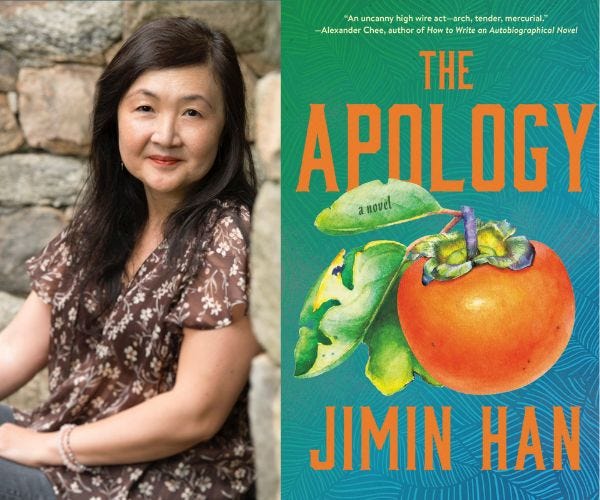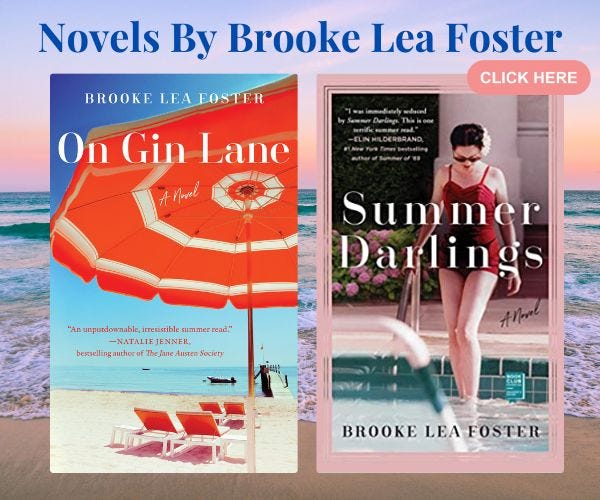I was a journalist with zero fiction writing experience when I met Jimin Han in 2017. I’d enrolled in a fiction workshop at The Writing Institute at Sarah Lawrence College and Jimin was one of the teachers. (Her first novel A Small Revolution released that year.) I still remember the day my classmates workshopped what was then a shapeless version of what would become my first novel Summer Darlings. As we went around the room, my classmates struggling to say anything positive (they were as kind as possible), it was Jimin that asked the most important question: “What are you really trying to say in this novel?”
It’s with this kind of insight that I began to realize that fiction wasn’t just about characters and setting and plot, although those are critical. Fiction was also a way to tell a story that imparts something you’ve learned, lessons you want to share with readers. “Slow down,” Jimin said to me nearly every time I shared an emotional scene. I tended to race through big moments, and she taught me to stop time and check in with what each character is thinking, seeing, tasting and hearing.
Now Jimin’s second novel The Apology launches today, and I cannot be more excited. Described as a “sweeping intergenerational saga," The Apology tells the story of a pampered and defiant South Korean matriarch thrust into the afterlife from which she seeks a second chance to make amends (Kirstin Chen)—and fights off a tragic curse that could devastate generations to come. Named a Lit Hub’s Most Anticipated Book of 2023, a top pick by Vanity Fair, a Shondaland Best Books to Read for Summer 2023 and one of Good Read’s 88 Upcoming Books the Goodreads Editors Can’t Wait to Read, The Apology should obviously be on your summer reading list.
In honor of launch, Jimin stopped by Dear Fiction to introduce herself to readers and answer questions about her powerful new novel.
Now Jimin, correct me if I’m wrong. When we had lunch eons ago, you had said that after writing this story for a while you realized you wanted to write a literary ghost story of some kind, but that wasn’t always clear in the beginning. How did you find your way to this story?
Jimin: Such a great question! The ghost in The Apology is based on stories my mother told me. They come from the region of Korea where she grew up, the influence of her parents, all that stuff that is specific to her experience. I filled in some details after watching KDramas and movies that did really well in South Korea about the afterlife. The comedy Hi Bye, Mama was particularly an influence for me because I loved how the story was both funny and sad. I wanted my novel to be both those things.
What writers inspire you? Were there any writers that you returned to specifically while writing this novel?
There are so many and everytime I answer this question, I’m sure it’ll be a little different. I can say that I was reading Anne Tyler’s A Spool of Blue Thread when I was writing an early draft of this book and I was so struck by the death of one of the major characters that it stayed with me and gave me permission to go for something big like that in my book. Turns out it was also death but that made sense because Jeonga, the protagonist in THE APOLOGY, is 105 years old. She was facing death in a way that was different from Tyler’s Abby Whitshank and from there I could stretch and see what other trouble she could get into.
Alexander Chee’s The Queen of the Night is so beautifully written and is such a grand novel in terms of scale that it inspired me also to reach for more story.
After my mother died in 2016, thinking about her stories reminded me of Maxine Hong Kingston’s The Woman Warrior– a huge influence from years ago– and writing The Apology gave me a way to think about my mom without sadness being the dominant emotion. My mom had such a dry sense of humor and took such delight in many things. I wanted to remember that too.
So interesting. What part of this novel was the biggest challenge to write?
Jeonga’s sisters, to be honest, went on and on for far too many pages. They had so much to say. I was so caught up in their dynamic that I didn’t have a clear sense of what parts to cut down. Talk about strong personalities. LOL. Other writers and my agent gave me advice and I still had trouble really trusting them. Ultimately we landed on a compromise and luckily my editor at Little, Brown agreed.
Is there a scene that you’re most proud of? A part that you love rereading and feel as though you really got right.
The two scenes I get the biggest kick out of are the ones with the psychic and the one in the airplane. Maybe because Jeonga really struggles to get her way in those chapters and I find myself laughing at her frustration.
Do you ever cry reading your own work? What moved you?
Probably the scene where Jeonga has the choice to go back in time and give up being in love, to never know true romantic love.
You went back for your MFA later in life, right? What made you do that, and looking back, did you think the MFA was worth it?
For me it’s a very loud yes. I was in my late 20s and really needed to focus on writing, be surrounded by other writers, and make a commitment to the practice of writing. Sarah Lawrence was the perfect place for me. It had a good balance – classes met only two evenings a week so you could continue working a job if you had one and go to campus at night. As part of the curriculum, I got to take theater and music classes. The improv class was so helpful to my writing! Also, I got to talk about books with others, from the perspective of craft. It was the boost and affirmation I needed. Sarah Lawrence was all about honoring the creative process.






